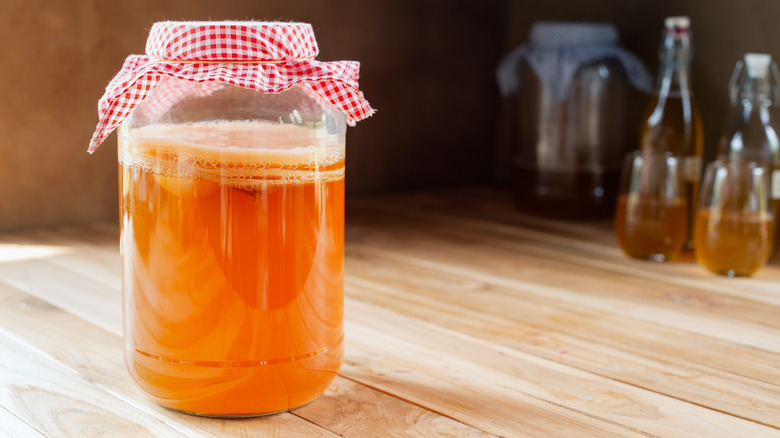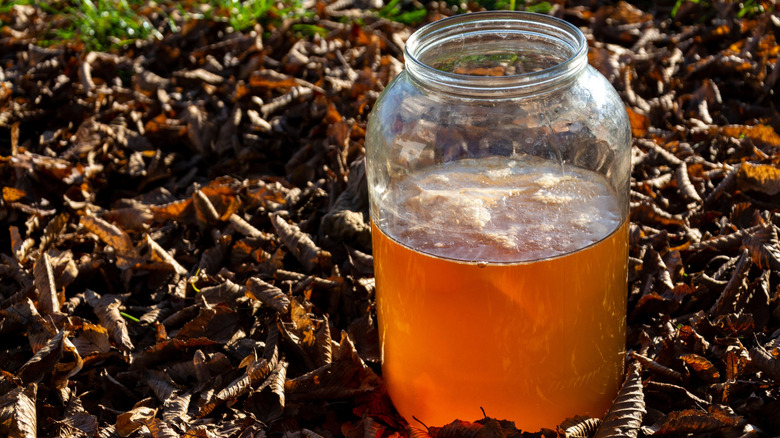The Best Sweetener To Use In Your Homemade Kombucha
Do you prefer sweet or sour? It turns out there might be a middle ground for tart-tasting homemade kombucha, and the secret lies in a straightforward strategy. Tasting Table caught up with Emma Christensen, Homebrewing Expert and author of the upcoming book "Hard Seltzer, Iced Tea, Kombucha, and Cider," to find out more. "If your kombucha is too tart and you'd like to make it sweeter, my personal preference is to make a simple syrup by dissolving one cup of sugar (any kind you like) in one cup of boiling water, letting this cool, and then adding a splash to the glass with the kombucha," Christensen reveals. A no-heat, no-fuss, simple sugar syrup recipe takes just over an hour to prepare. Once ingredients are mixed, you shake the secured bottle four times at 15-minute intervals — it's easy to juggle alongside other tasks.
Setting the non-splashed syrup aside as a reserve is an important takeaway from Christensen's advice. This easy-to-access spoonful of sugar might be the best centerpiece for your next kombucha-featuring dinner party. "That way, anyone drinking the kombucha can customize it to their own taste," Christensen explains, adding that the syrup can last up to a month when refrigerated. As a general rule, be wary of sugar-free recipes, too; omitting caloric sweeteners is one of the biggest mistakes to avoid with homemade kombucha. The probiotic drink relies on a culture of healthy bacteria, which need sugar for fermentation and survival. With kombucha, the secret really is in the sauce.
What's the role of sugar in kombucha?
It's worth expanding on the drink's relationship with sweeteners; sugar plays a significant role in your step-by-step guide to making and caring for kombucha. It ferments, feeds, and flavors. But let's start at the beginning: The drink is a concoction of tea (usually green or black) left to ferment with sugar and probiotics called SCOBY. This acronym stands for Symbiotic Colony Of Bacteria and Yeast, and in short, this culture requires food to grow. The sugar feeds the micro-organisms, giving them the energy to develop and create key features of the drink, like carbonation and tartness.
Adding the right amount is crucial, though. It isn't a case of "the more, the merrier." Too much, and fermentation actually decreases (dehydrating the SCOBY and stumping yeast growth). With an eight-ounce glass, the sweet spot — pun intended — likely sits between two and six grams. However, pay close attention to the specific recipe as kombucha making has an intricate rule book.

